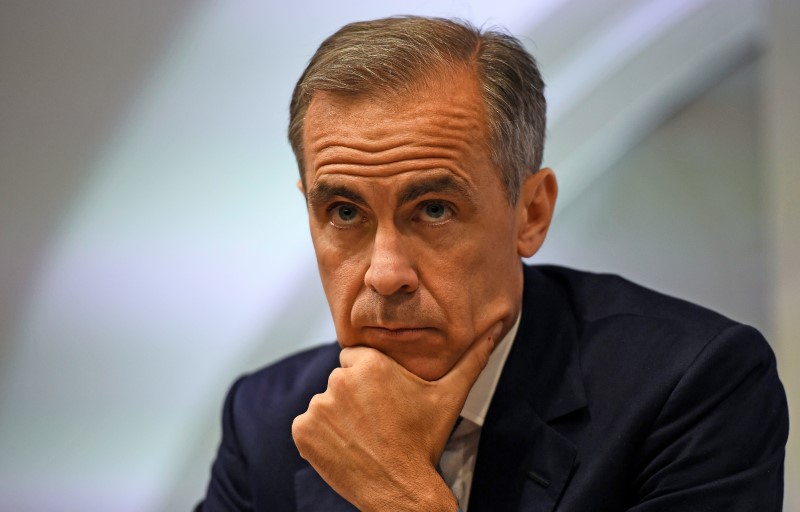By Jonathan Cable
LONDON (Reuters) - Bumper July jobs data from the United States have again begun to stoke expectations of a September rate hike from the Federal Reserve, just when other major central banks around the globe are unleashing ever-looser policy.
That slightly more positive tone may linger as a backdrop for the global economy in the coming week, with growth data due for the euro zone, Germany and Italy, along with key releases on inflation, industrial production and retail sales in China.
New Zealand's central bank is also expected to join the easing brigade with a cut on Thursday. [NZ/POLL]
In the past week, the Bank of England fired its first post-Brexit salvo - cutting Bank Rate to a new record low of 0.25 percent while also reigniting its asset purchase program - and hinted further easing was in the pipeline.
Governor Mark Carney said he had unveiled an "exceptional package of measures" because the economic outlook had changed markedly following the June Brexit vote. The Bank expects the economy to stagnate for the rest of 2016 and suffer weak growth next year.
Slow growth and virtually non-existent euro zone inflation will also force the European Central Bank to extend and expand the scope of its asset purchase program, a Reuters poll of economists showed last month. [ECILT/EU]
Early indications suggest the bloc has so far largely shrugged off Britain's decision to quit the European Union but preliminary data due on August 12 are expected to show the rate of economic growth across the currency union halved to 0.3 percent in the second quarter.
Germany will also publish its GDP numbers, likely to show a slowdown, but rising employment and wages should continue to support disposable income growth in the second half of the year. Italy probably maintained its slow and steady pace.
"With the UK potentially on the brink of recession, the resilience in economic sentiment indicators on the other side of the English Channel in July is perhaps surprising," said Christian Schulz at Citi.
ASIA
The Bank of Japan disappointed markets last month by keeping bond purchases steady, defying expectations it would buy up more, and made traders even more nervous after announcing it would re-evaluate policies in September.
Japan's economic growth is also expected to have slowed last quarter, weighed down by weak domestic demand and stagnant exports, a Reuters poll found on Friday.
That would be a setback for Prime Minister Shinzo Abe who has said the top priority for his reshuffled cabinet is growing the economy and beating deflation.
"The world's third-largest economy, continues to take center stage in global macroeconomic developments, partly due to the sense that it operates as a lodestar for the trajectory of both developed and emerging economies," said Richard Iley at BNP Paribas (PA:BNPP).
The actual GDP data won't be published until August 14 but on Wednesday the Cabinet Office publishes June core machinery orders, a leading indicator of capital spending, which likely rose for the first time in three months.
Three years of reflationary monetary, fiscal and reform policies dubbed "Abenomics" have done little to revive the economy, and financial markets are growing worried the BOJ is running out of ammunition.
"To quash talk that its arsenal is empty, the Bank of Japan might decide at its September meeting to stop targeting the monetary base, which conflicts with the negative-rate policy," Iley said.
Skittish global investors may be reassured by fairly steady growth expected in a flurry of Chinese data in coming weeks, but tepid demand, slowing investment and rising debt levels remain pressing concerns for the world's second-largest economy.
Beijing will publish data on trade, consumer prices, industrial production and retail sales in the week
With economic growth comfortably within the government's target range but credit growth near all-time highs, analysts have pared back calls for the first Chinese interest rate cut since October.

"Although signs were growing that the People's Bank of China could introduce more stimulus to boost growth, recent comments suggest that the bank is sufficiently happy with the pace of growth to keep monetary policy "prudent" this year," said Oliver Kolodseike at IHS Markit.